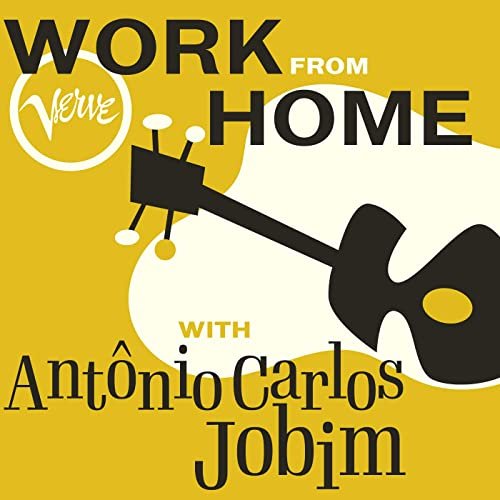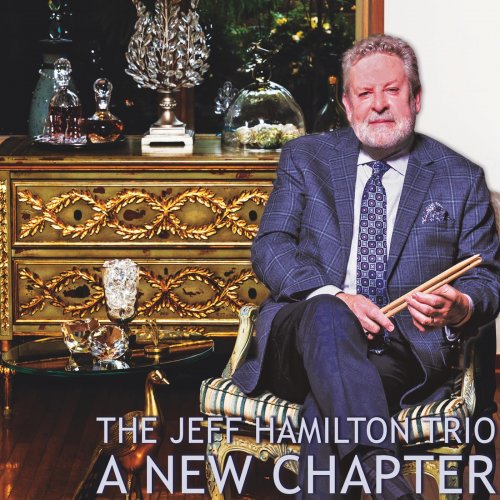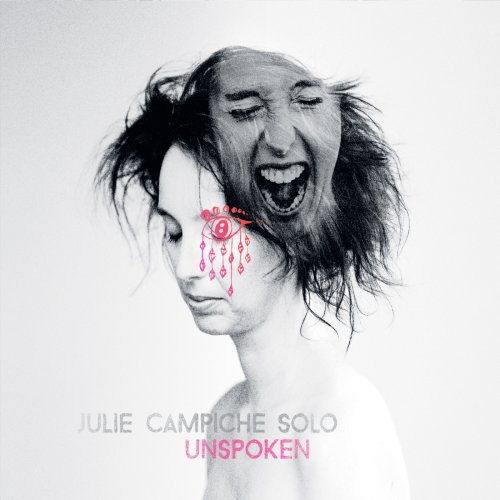Antônio Carlos Jobim - Work From Home with Antônio Carlos Jobim (2020)

Artist: Antônio Carlos Jobim
Title: Work From Home with Antônio Carlos Jobim
Year Of Release: 2020
Label: UMG Recordings, Inc.
Genre: Bossa Nova, Latin Jazz
Quality: FLAC (tracks) / MP3
Total Time: 1:54:42
Total Size: 654 / 263 MB
WebSite: Album Preview
Tracklist:Title: Work From Home with Antônio Carlos Jobim
Year Of Release: 2020
Label: UMG Recordings, Inc.
Genre: Bossa Nova, Latin Jazz
Quality: FLAC (tracks) / MP3
Total Time: 1:54:42
Total Size: 654 / 263 MB
WebSite: Album Preview
01] Samba De Uma Nota Só
02] The Girl From Ipanema
03] Wave
04] Meditação
05] Caribe
06] Corcovado
07] Insensatez
08] Triste
09] Agua De Beber
10] O Morro Não Tem Vez
11] Tide
12] Águas De Março
13] The Red Blouse
14] Bim Bom
15] Tema Jazz
16] Desafinado
17] Antigua
18] Once I Loved
19] Ana Luiza
20] Sue Ann
21] Inútil Paisagem
22] Chega De Saudade
23] Vivo Sonhando
24] So Danco Samba (Jazz Samba)
25] Mojave
26] Doralice
27] Batidinha
28] Para Machuchar Meu Coracao
29] La Vie En Rose
30] Lamento
31] Samba Da Minha Terra
32] Corcovado
33] Carinhoso
34] Desafinado
It has been said that Antonio Carlos Brasileiro de Almeida Jobim was the George Gershwin of Brazil, and there is a solid ring of truth in that, for both contributed large bodies of songs to the jazz repertoire, both expanded their reach into the concert hall, and both tend to symbolize their countries in the eyes of the rest of the world. With their gracefully urbane, sensuously aching melodies and harmonies, Jobim's songs gave jazz musicians in the 1960s a quiet, strikingly original alternative to their traditional Tin Pan Alley source.
Jobim's roots were always planted firmly in jazz; the records of Gerry Mulligan, Chet Baker, Barney Kessel, and other West Coast jazz musicians made an enormous impact upon him in the 1950s. But he also claimed that the French impressionist composer Claude Debussy had a decisive influence upon his harmonies, and the Brazilian samba gave his music a uniquely exotic rhythmic underpinning. As a pianist, he usually kept things simple and melodically to the point with a touch that reminds some of Claude Thornhill, but some of his records show that he could also stretch out when given room. His guitar was limited mostly to gentle strumming of the syncopated rhythms, and he sang in a modest, slightly hoarse yet often hauntingly emotional manner.
Born in the Tijuca neighborhood of Rio, Jobim originally was headed for a career as an architect. Yet by the time he turned 20, the lure of music was too powerful, and so he started playing piano in nightclubs and working in recording studios. He made his first record in 1954 backing singer Bill Farr as the leader of "Tom and His Band" (Tom was Jobim's lifelong nickname), and he first found fame in 1956 when he teamed up with poet Vinícius de Moraes to provide part of the score for a play called Orfeo do Carnaval (later made into the famous film Black Orpheus). In 1958, the then-unknown Brazilian singer João Gilberto recorded some of Jobim's songs, which had the effect of launching the phenomenon known as bossa nova. Jobim's breakthrough outside Brazil occurred in 1962 when Stan Getz and Charlie Byrd scored a surprise hit with his tune "Desafinado" -- and later that year, he and several other Brazilian musicians were invited to participate in a Carnegie Hall showcase. Fueled by Jobim's songs, the bossa nova became an international fad, and jazz musicians jumped on the bandwagon, recording album after album of bossa novas until the trend ran out of commercial steam in the late '60s.
Jobim himself preferred the recording studios to touring, making several lovely albums of his music as a pianist, guitarist, and singer for Verve, Warner Bros., Discovery, A&M, CTI, and MCA in the '60s and '70s, and Verve again in the last decade of his life. Early on, he started collaborating with arranger/conductor Claus Ogerman, whose subtle, caressing, occasionally moody charts gave his records a haunting ambience. When Brazilian music was in its American eclipse after the '60s, a victim of overexposure and the burgeoning rock revolution, Jobim retreated more into the background, concentrating much energy upon film and TV scores in Brazil. But by 1985, as the idea of world music and a second Brazilian wave gathered steam, Jobim started touring again with a group containing his second wife Ana Lontra, his son Paulo, daughter Elizabeth, and various musician friends. At the time of his final concerts in Brazil in September 1993 and at Carnegie Hall in April 1994 (both available on Verve), Jobim at last was receiving the universal recognition he deserved, and a plethora of tribute albums and concerts followed in the wake of his sudden death in New York City of heart failure. Jobim's reputation as one of the great songwriters of the century is now secure, nowhere more so than on the jazz scene, where every other set seems to contain at least one bossa nova. ~ Richard S. Ginell
Jobim's roots were always planted firmly in jazz; the records of Gerry Mulligan, Chet Baker, Barney Kessel, and other West Coast jazz musicians made an enormous impact upon him in the 1950s. But he also claimed that the French impressionist composer Claude Debussy had a decisive influence upon his harmonies, and the Brazilian samba gave his music a uniquely exotic rhythmic underpinning. As a pianist, he usually kept things simple and melodically to the point with a touch that reminds some of Claude Thornhill, but some of his records show that he could also stretch out when given room. His guitar was limited mostly to gentle strumming of the syncopated rhythms, and he sang in a modest, slightly hoarse yet often hauntingly emotional manner.
Born in the Tijuca neighborhood of Rio, Jobim originally was headed for a career as an architect. Yet by the time he turned 20, the lure of music was too powerful, and so he started playing piano in nightclubs and working in recording studios. He made his first record in 1954 backing singer Bill Farr as the leader of "Tom and His Band" (Tom was Jobim's lifelong nickname), and he first found fame in 1956 when he teamed up with poet Vinícius de Moraes to provide part of the score for a play called Orfeo do Carnaval (later made into the famous film Black Orpheus). In 1958, the then-unknown Brazilian singer João Gilberto recorded some of Jobim's songs, which had the effect of launching the phenomenon known as bossa nova. Jobim's breakthrough outside Brazil occurred in 1962 when Stan Getz and Charlie Byrd scored a surprise hit with his tune "Desafinado" -- and later that year, he and several other Brazilian musicians were invited to participate in a Carnegie Hall showcase. Fueled by Jobim's songs, the bossa nova became an international fad, and jazz musicians jumped on the bandwagon, recording album after album of bossa novas until the trend ran out of commercial steam in the late '60s.
Jobim himself preferred the recording studios to touring, making several lovely albums of his music as a pianist, guitarist, and singer for Verve, Warner Bros., Discovery, A&M, CTI, and MCA in the '60s and '70s, and Verve again in the last decade of his life. Early on, he started collaborating with arranger/conductor Claus Ogerman, whose subtle, caressing, occasionally moody charts gave his records a haunting ambience. When Brazilian music was in its American eclipse after the '60s, a victim of overexposure and the burgeoning rock revolution, Jobim retreated more into the background, concentrating much energy upon film and TV scores in Brazil. But by 1985, as the idea of world music and a second Brazilian wave gathered steam, Jobim started touring again with a group containing his second wife Ana Lontra, his son Paulo, daughter Elizabeth, and various musician friends. At the time of his final concerts in Brazil in September 1993 and at Carnegie Hall in April 1994 (both available on Verve), Jobim at last was receiving the universal recognition he deserved, and a plethora of tribute albums and concerts followed in the wake of his sudden death in New York City of heart failure. Jobim's reputation as one of the great songwriters of the century is now secure, nowhere more so than on the jazz scene, where every other set seems to contain at least one bossa nova. ~ Richard S. Ginell
![Meinild/Anderskov/Tom - Spectral Entanglements (2023) [Hi-Res] Meinild/Anderskov/Tom - Spectral Entanglements (2023) [Hi-Res]](https://www.dibpic.com/uploads/posts/2026-02/1771491474_hl116k2q9n24a_600.jpg)
![The Messthetics & James Brandon Lewis - Deface The Currency (2026) [Hi-Res] The Messthetics & James Brandon Lewis - Deface The Currency (2026) [Hi-Res]](https://www.dibpic.com/uploads/posts/2026-02/1771424652_1.jpg)
![Tom Oren - Dark Lights (2026) [Hi-Res] Tom Oren - Dark Lights (2026) [Hi-Res]](https://www.dibpic.com/uploads/posts/2026-02/1771427884_tdqtmzk78zgcb_600.jpg)



![The Three Seas - Antaḥkaraṇa (2026) [Hi-Res] The Three Seas - Antaḥkaraṇa (2026) [Hi-Res]](https://img.israbox.com/img/2026-02/19/uhghtg21m4gkq8nt8lyl1f5dq.jpg)
![Meg Okura - Isaiah (2026) [Hi-Res] Meg Okura - Isaiah (2026) [Hi-Res]](https://www.dibpic.com/uploads/posts/2026-02/1771428622_a0886412943_10.jpg)
![Anna Kolchina - Reach for Tomorrow (2026) [Hi-Res] Anna Kolchina - Reach for Tomorrow (2026) [Hi-Res]](https://img.israbox.com/img/2026-02/19/quc4em3qn6fgke1rwewkbdxg5.jpg)